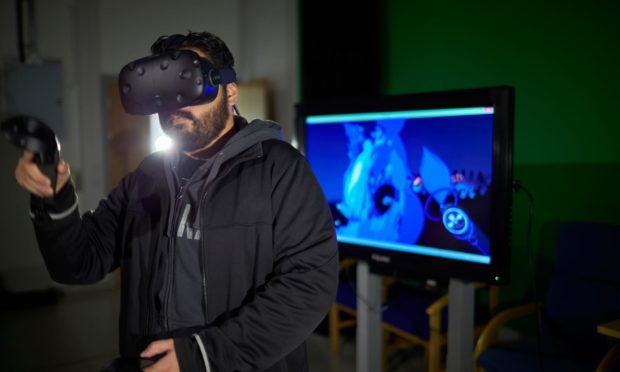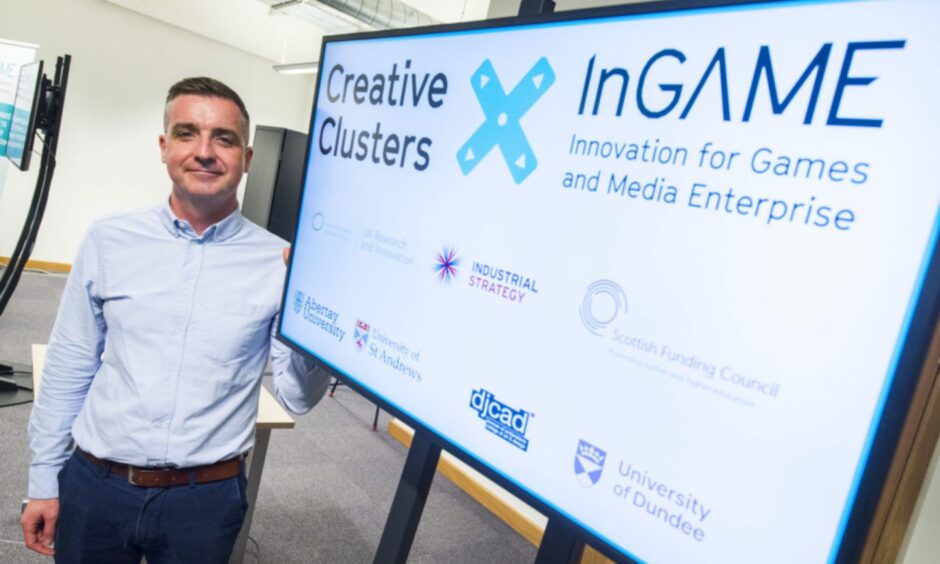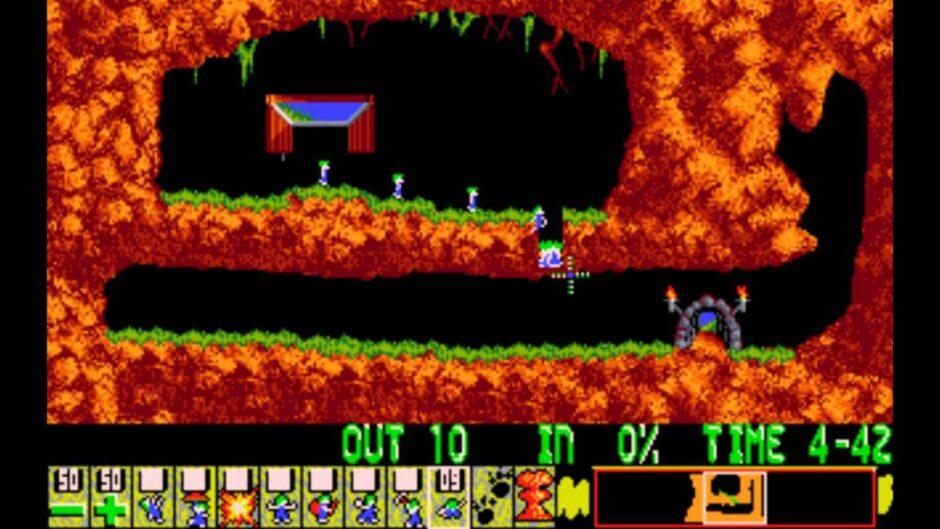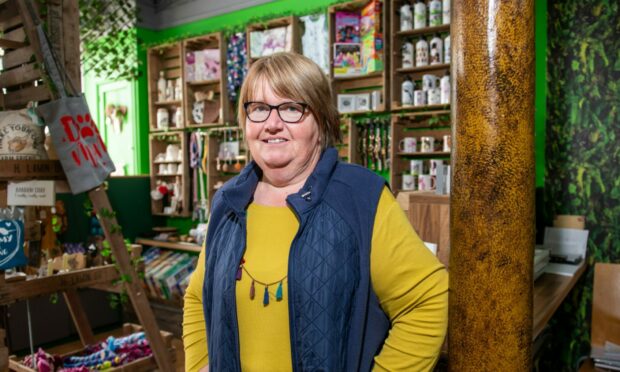A new video games network should be created to help turn Scotland’s gaming sector into a global “superpower”.
A research paper by Our Scottish Future warns Scotland’s gaming sector now risks being left behind as American, Chinese and Japanese giants dominate the market.
It notes that Scotland already benefits from world-class institutions, such as Abertay University, whose computing courses in the 1980s led to Dundee becoming a sector leader in the UK.
However, it says a new UK-wide network, which brings together expertise, finance, and services, is now needed to help Scottish firms continue to punch above their weight.
The paper says such a plan should be at the top of the agenda of the newly formed inter-ministerial group for business and industry.
That brings the UK Government together with devolved governments to work on shared plans.
Risk of losing ‘another industrial legacy’
Report author Ruairidh Macintosh says: “Scotland needs a plan for video games or risks losing another industrial legacy.
“The best plan would be one that seized the advantages Scotland’s games industry gets from the social and economic connections of the United Kingdom.
“From finance, skills, and connections with England’s own world-class games industry as well as other leading high-tech creative industries such as film and TV.
“The UK offers opportunities to make the most of Scottish talent and creativity.
“Alone, the risk is that historically successful clusters in Edinburgh and Dundee cannot keep up with ever stronger clusters in America, Japan, China and Europe.
“By combining Scottish imagination with the ideas, resources, and connections of the UK we have the best chance to stay competitive in the long-term.”
Computer science in Scottish schools?
Paul Durrant, director of Dundee-based UK Games Fund, said investment across the UK would improve the position.
He said it would also help to attract talent and investment.
Mr Durrant, awarded an OBE earlier this year for services to the games industry, said: “Because we are connected across UK games clusters, we fully recognise the potential for Scotland.”
The paper sets out a series of proposals, building on the recent Scottish Government review led by tech entrepreneur Mark Logan.
It says the Scottish Government should commit to making computer science a core part of the school curriculum.
Last year, an education expect said video games like Minecraft can play an important role in schools.
Other recommendations are to increase the number of computing places at university and expand funding for start-up companies.
It also calls on the Scottish Government to open a Scottish investment office in London.
That would, the report says, help firms access venture capital from the City.
Sean Taylor, director of the InGAME research and innovation centre led by Abertay University, added: “A collaborative, cooperative approach presents the opportunity for Scotland to create a competitive advantage within the world’s biggest entertainment industry and beyond.”
Games network needed to help businesses
The paper says the UK and Scottish Governments should work to build a new UK-wide network, connecting firms and students in key towns and cities, including Dundee.
The other places on the list are Edinburgh, Leamington Spa, Cambridge and Sheffield.
It says the fledgling studios should be able to use connections to access this assistance.
The report says it would help studios make connections with “established companies working on something more similar to them than the studios physically near them.”
As it stands, when these connections are made it happens “by luck rather than design”, the report adds.
Gaming industry worth £350m to Scotland
Globally, the video games industry is now worth £160 billion ($200bn).
Scotland accounts for a disproportionate share of the UK wide industry, with 6,400 people employed in the sector, 11% of the UK wide total.
The sector is estimated to be worth nearly £350 million to the Scottish economy.
Scottish firms Rockstar, Axis Studios, 4J Studios and Tag Games are all globally recognised brands.
The industry is expected to double in worth by 2028, to more than £320bn ($400bn).
OPINION: ‘To stay competitive, we need a plan’
By Ruairidh Macintosh, author of Playing To Win for Our Scottish Future
Dundee became famous around the world for its three J’s: jam, jute and journalism. Now it is time to celebrate a fourth: joystick.
All over Scotland there is a thriving video games sector, part of a global market worth more than film, TV and music combined.
And its birthplace was on the River Tay in the 1980s.
As parents went to work in the Timex factory making the Spectrum home computer, local kids got into gaming and the first generation of game developers went on to make some of the best-selling games of all time, including Lemmings and Grand Theft Auto.
Beyond the history, Scotland’s – and Dundee’s – best days still lie ahead.
Millions of people play games across Scotland, from simple puzzle games on phones to highly immersive games on the latest consoles.
An ‘enormous opportunity’
Around the world, millions more are getting into gaming every day. And because games can be made anywhere and sold everywhere, there is an enormous opportunity for the demand to be met with Scottish creativity and humour.
That same opportunity creates the biggest challenge: in a global market, Scotland is competing with every other country.
This includes not only the industry titans in America, Japan and China but also innovative companies in smaller countries such as Finland.
To stay competitive for the next 30 or 40 years, we need a plan or risk losing another industrial legacy.
The good news is that parts of that plan are already in place.
We have successful game studios across the country, world-leading expertise in Abertay University, and additional Scottish Government investment in technology start-ups.
But in the face of stiff global competition, the best plan would be one which created advantages that other countries will find hard to replicate.
Here, the social and economic connections of the rest of the UK offer a chance to make the most of Scottish creativity.
Naturally, closer connection with the ideas and imagination of other developers can help spur new innovative games.
Equally as exciting is the crossover between games and other industries where the UK has real strengths.
A prime example is film. High-end productions are adopting more of the technology behind games and blurring the line between the genres.
‘Together we can be at forefront’
And when Scottish companies need financing to compete, London’s world-class markets offer the level of resource needed to match their ambition.
The problem is, unlike other countries, Scotland’s and the UK’s clusters of games expertise are spread out.
That means the connections and interactions that could spur new ideas or innovation happen less often, if at all.
In competition with New York, Los Angeles, and everywhere else we risk losing out. And frankly our two governments today are not joined up about this.
The National Strategy for Economic Transformation launched earlier this year in Dundee. It does not grasp the potential for greater cooperation with the rest of the UK.
Nor has Westminster woken up to the value of combining Scottish expertise with industry across the country.
To put Scotland’s best foot forward, we need a plan that connects all of the available imagination, talent and resource at our disposal – building far deeper connections around capital, skills, and key companies to create a virtual cluster out of many different cities across the UK.
Together we can stay at the forefront of this industry of the future.
The opportunity lies in drawing together those threads from across Scotland and the UK, backed by government. And in doing so, continue our role as a pioneer in games.






















